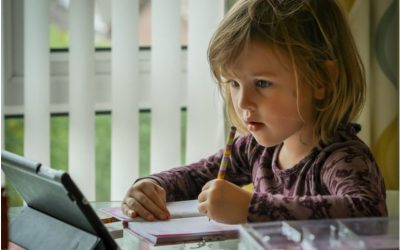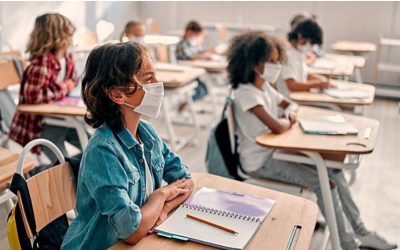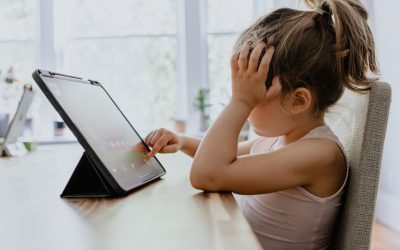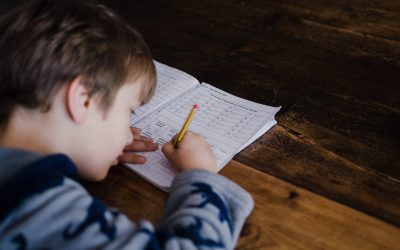COVID-19 and school closures; legislative aspects of the new situation
10 Apr 2020 | Parents
This exceptional period raises a number of questions about the legislative context of some of the decisions currently being taken, such as on the authority to close schools and suspend assessments. As there are no specific provisions for such decision in legislation, the legal basis on which these decisions are taken is not always clear-cut.
In this contribution, professor of education law, Renée van Schoonhoven, discusses how Dutch legislation regulates the relationship between parents, students and schools, even when schools are closed, and explains where the authority to cancel exams lies.
This exceptional period raises a number of questions about the legislative context of some of the decisions currently being taken, such as on the authority to close schools and suspend assessments. As there are no specific provisions for such decision in legislation, the legal basis on which these decisions are taken is not always clear-cut. In this contribution, Prof. dr. Renée van Schoonhoven answers the following three questions:
- What are provisions in Dutch legislation concerning the relationship between parents, students and schools and how do these apply to a situation where schools are closed?
- Who has the authority to cancel exams?
Who has the legal authority to close schools?
In mid-March, the minister announced that all schools will be closed. Strictly speaking, in the Dutch education system it is not up to the minister to close a school, but to the school board in question. That is why the minister refers to an “announcement”. As this announcement was made at the request of national organisations representing schools in primary and secondary education (PO council, VO council) and the trade unions, there was national buy-in for closure.
Subsequently, municipalities outlined a set of so-called emergency regulations. These are local regulations which state that due to the coronavirus public meetings may temporarily not take place and that amongst other it is prohibited to open schools. An exemption was made for emergency care in schools for children whose parents work in a crucial profession. Some of the municipalities also allowed children with special needs to be taught in schools designated as ‘emergency care’. School boards then have to comply to these emergency regulations and close their schools.
Compulsory education: from physical to digital
As schools are closed, parents and pupils can no longer meet their legal duty of school attendance; an obligation under the Compulsory Education Act. At least … not in a physical sense. Compliance with that law is enforced by municipalities who also issued the emergency edict to close schools, so it would be unfair to enforce compliance to the school attendance provision, while not providing for a physical space where education is provided. So this is specific requirement is waivered and instead municipal officers now check that parents comply to the act by supporting their child’s ‘home-schooling’ and online access to teaching. The municipality offers laptops and facilitates online access where parents don’t have this. The crisis seems to introduce a new distinction between a school attendance obligation in a physical and digital sense.
The legal relationship between school, parent and student: roles and responsibilities in home education
Now that schools are closed, the relationship between parents, students and school also changes. However, on a short term the same legal rights and obligations continue to apply. After all, the students continues to be enrolled in school, which – in principle – means that the school is still legally responsible for providing education, and students and parents are obliged to participate in the educational activities organized by the school. But that is of course easier said than done. After all, the circumstances of today are not at all comparable to those of a few weeks ago.
Shouldn’t we develop a set of new agreements about the distribution of rights and obligations, whereby parents will also be compensated for the time they invest in teaching on behalf of the school?
Actually yes, but this is complicated matter where schools are also in a situation that is out of their control. So for now it is especially important that parents, students and school mainly adapt and collaborate and make the best of it. However, should the situation persist for longer, the question may indeed arise whether and how the legal relationship should be redesigned.
The minister puts an end to the decrease in final tests and exams
The minister also suspended national tests and exams. As national tests and exams are his responsibility, it was well within his remit to make this decision, even though the legislation does not specifically provide for such an option or describe the situation in which exams can be cancelled.
Can the minister just cancel national tests and examinations?
Yes, because here the general rule applies that for such an exceptional step in exceptional circumstances, the minister needs the support of a majority in parliament. And this is evident from the support that the House of Representatives has given to the whole set of crisis measures. His decision is thus democratically legitimized, so it is possible.
See also information for:
Most recent blogs:
How LEARN! supports primary and secondary schools in mapping social-emotional functioning and well-being for the school scan of the National Education Program
Jun 28, 2021
Extra support, catch-up programmes, learning delays, these have now become common terms in...
Conference ‘Increasing educational opportunities in the wake of Covid-19’
Jun 21, 2021
Covid-19 has an enormous impact on education. This has led to an increased interest in how recent...
Educational opportunities in the wake of COVID-19: webinars now available on Youtube
Jun 17, 2021
On the 9th of June LEARN! and Educationlab organized an online conference about...
Homeschooling during the COVID-19 pandemic: Parental experiences, risk and resilience
Apr 1, 2021
Lockdown measures and school closures due to the COVID-19 pandemic meant that families with...
Catch-up and support programmes in primary and secondary education
Mar 1, 2021
The Ministry of Education, Culture and Science (OCW) provides funding in three application rounds...
Home education with adaptive practice software: gains instead of losses?
Jan 26, 2021
As schools all over Europe remain shuttered for the second time this winter because of the Covid...






